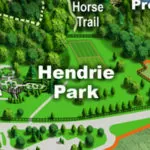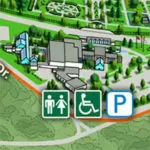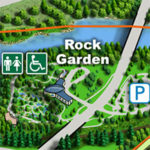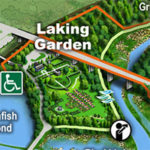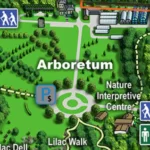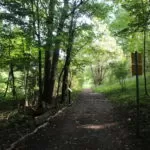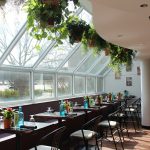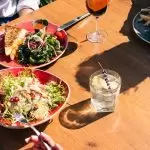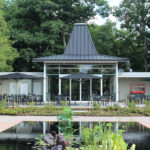| Membership | Price (+HST) |
|---|---|
| Single | $85/year |
| Single Plus | $120/year |
| Family | $130/year |
| Family Plus | $175/year |
| Contributing | $300/year |
| Supporting | $600/year |
| Sustaining | $1,000/year |
| Benefactor's Circle | $2,500/year |
| Director's Circle | $5,000/year |
| President's Circle | $10,000/year |
On the Trails: May 2023
Spring is in full swing and our nature sanctuary trails are packed with natural wonders to enjoy. Highlights include migratory birds, Bald Eagles, and forest wildflower (spring ephemerals) in full bloom. Woodland trails with names such as Bridle, Captain Cootes, Grey Doe, Armstrong and Ginger Valley abound with flowers carrying names like trillium, trout lily, and toothwort. The Anishinaabe Waadiziwin Trail below the Nature Interpretive Centre is continuously being enhanced and can also be part of a relaxing trip to see the Arboretum Magnolia, Lilacs or Flowering Dogwood blooms.
Migratory birds of all types are now present, with over 250 species seen annually. The most dramatic sightings include thousands of swallows over Cootes Paradise Marsh, and raptors cursing north along Burlington Heights. The most common species observed in 2022 were the Red-winged Blackbird and the Song Sparrow, both associated with the recovering marsh habitats.
Canoeing in Cootes Paradise provides a different vantage point of the marsh, with a launch available from Princess Point or through an RBG program.
The Bald Eagles can be seen circling their territory in the Spencer Creek and Hopkins Wood Special Protection Area. Best views of the area the eagles patrol are from the Marsh Boardwalk Lookout or George North Tower via the Arboretum. Several additional juvenile eagles have also taken up residence at Cootes Paradise.
The Fishway continues to facilitate the migration of spring spawning fish with most fish currently spawning or now returning to the lake. As a result of the reduced activity operations are reduce to the afternoons only.
Trail User Notes
- The Ray Lowes side trail connection from Rock Chapel to Arboretum ends at York Rd and does not connect to Cootes Paradise. This relates to the Bruce Trail Conservancy head office having moved from the Arboretum, now located in Dundas via another side trail from the escarpment.
For Your Safety
- While using our nature trails, please note that all use is at your own risk. Most of our trails are hilly and the trail surfaces are natural soil. Consider your footwear as during winter surfaces can be icy or muddy depending on the weather.
- High numbers of visitors will be encountered at times and our trails are narrow; please bring a mask to wear when you cannot physically distance from others.
- Please stay on the marked trails to avoid trampling regenerating shrubs and trees or buried roots of understory plants such as trilliums.
- The nature trail system is considered closed during extreme weather event notifications from Environment Canada.
- Mountain bikes/fat bikes are not allowed as our trails are not designed to accommodate these activities.
- Please be aware ticks, including those carrying Lyme Disease, are found throughout the Hamilton/Burlington area and are active at temperatures above 0°C. Protect yourself by staying on marked trails. RBG does not accept ticks for testing. For inquiries regarding ticks, please contact the Region of Halton or City of Hamilton Public Health.
Explore RBG’s Trails
RBG’s nature sanctuaries feature more than 27 km of nature trails! Find maps, guided hike schedule, and more.
Trail Maps
RBG’s nature sanctuaries stretch across Hamilton and Burlington and feature more than 27 km of nature trails with four main trailheads and two canoe launch sites.
Birding
Royal Botanical Gardens provides easy access to some of the most diverse birding in Ontario.
Courses & Programs
RBG offers courses and workshops in Burlington & Hamilton for families, kids and adults in the areas of gardening, nature, botanical arts and wellness.

